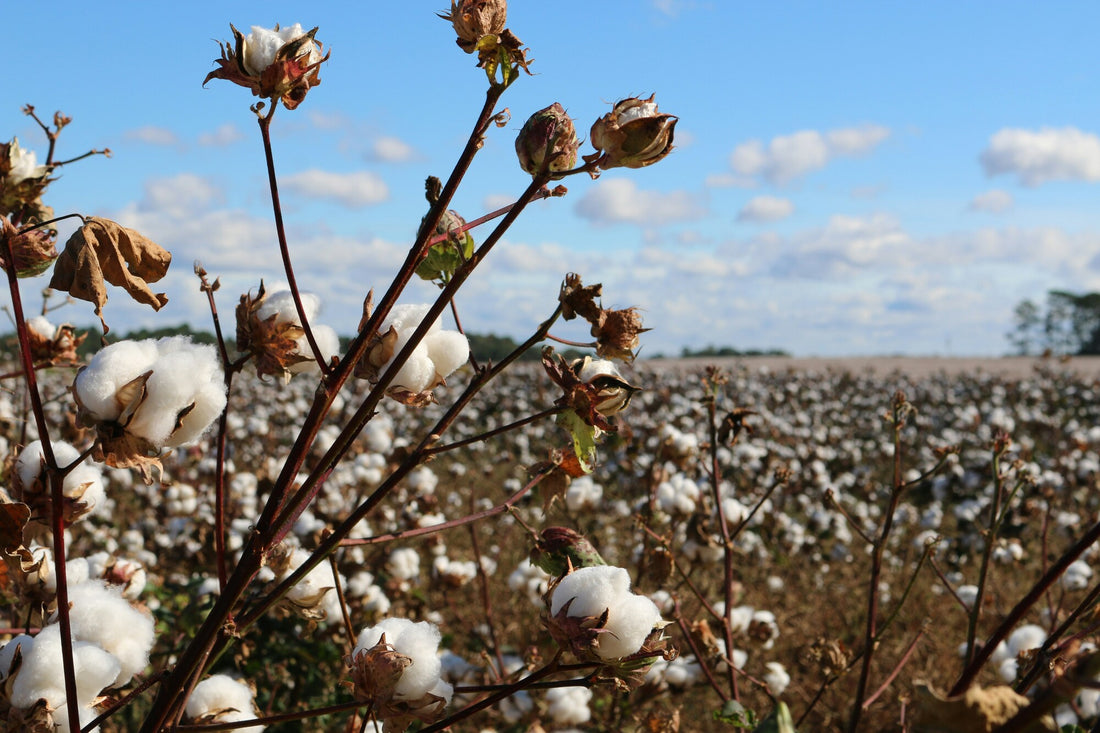
Standard VS Organic Cotton Explained
Share
< 5 min read 📖
Imagine a world where our clothing choices directly contribute to a healthier planet. This vision hinges on the choice between two distinct paths in cotton production: standard cotton and organic cotton. Each path has vastly different impacts on our environment, health, and future sustainability. At Le Court Club, we have chosen the path of organic cotton.

Global Context of Cotton Production
Cotton, as the most produced natural textile fiber globally, represents 3% of the world's cultivated land, with about 25 million tonnes produced annually. This global context sets the stage for understanding the radical ecological differences between standard and organic cotton.
Standard cotton is grown using modern agriculture techniques, often relying on synthetic fertilizers and pesticides to boost yield. In contrast, organic cotton, grown under stringent global certification standards like GOTS (Global Organic Textile Standard), prohibits synthetic chemicals, thereby promoting soil health and ecosystem diversity. Here at Le Court Club, we're happy to offer a wide range of GOTS-certified products.

Cultivation Practices: Beyond the Surface
Standard cotton's cultivation is marked by heavy chemical use, which leads to rapid growth but comes with significant ecological and health costs. For instance, in regions like the Mississippi Delta, expansive cotton fields are often doused with pesticides that can run off into waterways, affecting not just the soil and local flora and fauna, but also the health of communities living downstream who rely on these waters for drinking and recreation. In contrast, organic cotton uses natural fertilizers and practices like crop rotation, which not only enriches the soil but also reduces water usage by up to 90% and fosters biodiversity.
Environmental Impact: A Comprehensive Comparison
Here, organic cotton significantly outshines standard cotton. Conventional cotton farming is notorious for its soil degradation and extensive water usage – up to 2500 liters per t-shirt compared to organic cotton's 100 liters. The excessive water use in conventional cotton is exacerbated by the dilution of chemicals. Organic cotton's healthier, more absorbent soils reduce the need for irrigation.
Conventional cotton contributes to 25% of the world's insecticides and employs harmful chemicals in processing, such as chlorine bleach and heavy metals for dyeing. This not only harms the environment but also poses health risks, with thousands of pesticide-related deaths reported annually. Organic cotton, processed without these harmful chemicals, offers a safer alternative.
Quality and Durability: Feeling the Difference
Organic cotton's fibers are more resistant to textile treatments, enhancing both its quality and lifespan. It is often perceived as softer and more durable due to the absence of chemical processing. The superior quality and softness of our t-shirts and sweaters have been frequently praised by numerous customers.
Cost and Accessibility: The Economic Landscape
While organic cotton is more expensive, about 30% higher than conventional, this reflects its lower yield, fair trade practices, and the long-term savings in environmental and health costs.
Organic cotton isn't just a product; it's a movement towards sustainable agriculture. With growing environmental awareness and demand for eco-friendly products, it is poised to become more mainstream.
For those looking to make a difference, choosing organic cotton products certified by labels like GOTS (Global Organic Textile Standard) is crucial. Businesses can support this movement by sourcing organic cotton and advocating for sustainable practices.
ConclusionIn summary, the choice between standard and organic cotton goes beyond fabric. It's a decision impacting our environment, health, and sustainability. Embracing organic cotton is a step towards a more sustainable world. Let's make informed choices for our planet and ourselves!
